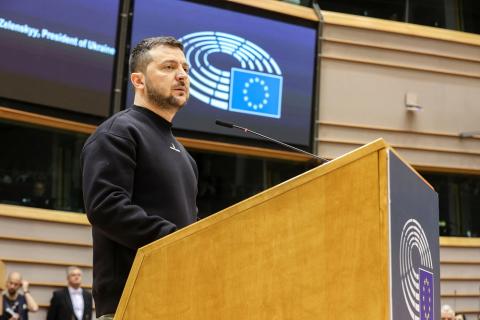
Japanese Prime Minister Yoshihide Suga and top EU leaders, led by European Commission President Ursula von der Leyen, meet on Thursday for a summit that will not just deepen their strategic partnership but also set the agenda for next month’s G7 and October’s G20 meetings.
This week’s discussions will cover issues in multiple areas. First is the multilateral front, including pandemic response and recovery; climate change; environment and the circular economy; and key regional challenges and specific aspects of cooperation on security and democracy, such as cooperation in the Asia-Pacific region.
However, it is the bilateral agenda that will attract most excitement, with the leaders discussing the implementation of the EU-Japan strategic, economic and connectivity partnerships. The reason why there is such interest in this agenda is the recent warming of Japanese-European ties, especially during Donald Trump’s US presidency, when the two powers stepped up their leadership on international trade and the rules-based economic order.
This agenda is central to Thursday’s summit because of the EU-Japan free trade agreement. Both sides want to take stock of the implementation of this mammoth deal, which covers about a third of global gross domestic product and almost 650 million people.
The signing of the deal helped set the agenda for Japan’s G20 in 2019, which promoted the international trade agenda. Italy wants to follow suit here in 2021 with its own presidency of the club of world powers, as it seeks to place the post-pandemic economic recovery at the top of the agenda.
Ahead of the G20 leaders’ summit in Rome in October, the host nation is particularly keen to avoid the squabbles over trade that were seen in Argentina in 2018 and in Germany in 2017, with the latter producing a clash between Trump and host Chancellor Angela Merkel. At that time, the German leader pushed for a strong G20 reaffirmation of the principles of international trade, but the then-US president secured a partial victory by inserting language in the end-of-summit communique that countries could protect their markets with “legitimate trade-defense instruments.”
The EU-Japan accord took years to agree, with the headlines captured by the scrapping of almost all duties on Japanese and European imports. This could be a particular boon for key EU exports to Japan, such as dairy and other food products, while Japan’s automakers may be big winners too.
Japan remains the world’s third-largest economy, after the US and China, and is one of Europe’s top export markets in Asia. In the EU, it is estimated that some 600,000 jobs are now tied to bilateral trade, with an estimated 74,000 European firms exporting to Japan.
Beyond the numbers, however, both sides have stressed that the trade treaty is also important because it rests on “values and principles.” In part, this relates to the fact that the agreement is the first to be struck by Brussels that includes language upholding the Paris climate agreement. Specifically, there is a commitment to support the Paris treaty by making a “positive contribution” to reducing climate change by cutting greenhouse gas emissions. This follows a move by the European Commission to try to ensure that all future EU trade bargains include reference to the key climate deal.
However, it is not just on the European front that Japan is making waves on international trade. Tokyo has also been at the vanguard of 11 Asia-Pacific and Americas nations that signed the so-called Comprehensive and Progressive Agreement for Trans-Pacific Partnership (CPTPP). This new CPTPP bloc, which accounts for about 13 percent of global trade and a combined population of about 500 million, comprises Australia, Canada, Singapore, New Zealand, Japan, Chile, Brunei, Malaysia, Mexico, Peru and Vietnam. Moreover, several other nations are reported to be interested in joining, including Thailand, Colombia, South Korea, Indonesia and the UK.
Both sides have stressed that their trade treaty is important because it rests on ‘values and principles’.
Andrew Hammond
Tokyo has also reached a big bilateral deal with the US. Moreover, the UK-Japan Comprehensive Economic Partnership Agreement was the first deal that Britain struck post-Brexit. The UK deal is tailored to both economies, with benefits for digital and data, financial services, food and drink, and the creative industries. It gives an estimated boost to bilateral trade of more than £15 billion ($21 billion), along with a strong commitment from Japan to support UK access to the CPTPP. In so doing, the agreement marks a closer alliance between the UK and Japan, which is seeing the two work together while London holds the G7 presidency and seeks to champion international trade issues.
Taken overall, this week’s summit will again burnish Japan and the EU’s international trade leadership. And in the growing context of uncertainty over the future of the multilateral trade system, rules-based economic order and liberal democracy itself, the dialogue will help set the agenda for the UK’s G7 in June and Italy’s G20 in October, which will both promote commitments to multilateralism and international trade.
Andrew Hammond is an Associate at LSE IDEAS at the London School of Economics.
Disclaimer: Views expressed by writers in this section are their own and do not necessarily reflect Arab News" point-of-view











